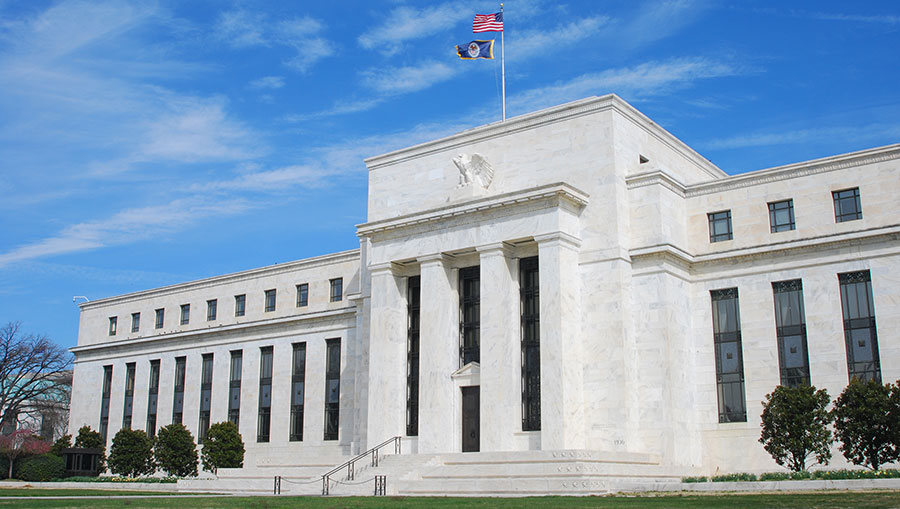Personal Wealth Management / Market Analysis
Is a Eulogy Necessary for the S&P 500 ‘Earnings Recession’?
FactSet’s tally of Q4 earnings flipped positive Tuesday, which—if it holds through the end of reporting season—would cease 2019’s widely bemoaned “earnings recession.”
US stocks’ huge 31.5% rise in 2019 came amid a much-maligned stretch for earnings, which contracted in the year’s first three quarters.[i] Tuesday, data showed the S&P 500’s widely discussed 2019 “earnings recession” may have ended. Don’t worry, that is no reason to think stocks will have a bad 2020.
All throughout last year, pundits fretted a so-called “earnings recession”—a string of at least two quarters of falling earnings. Many feared it would squash stocks, which were allegedly overlooking a decline in a key fundamental factor. After all, while S&P 500 earnings were busy contracting in the year’s first three quarters, US stocks rose 20.6%.[ii] Most anticipated earnings’ continuing to contract in Q4. At the end of December 2019, analysts polled by FactSet expected earnings to fall -1.6% y/y in the quarter, which would make 2019 the first four-quarter decline since a streak in 2015 – 2016.[iii] By the time reporting began, they had cut estimates to -2.0% y/y. Of course, the weak expectations didn’t slow stocks much, which rose 9.1% in Q4.[iv]
So, given this backdrop, when we arrived at the office Tuesday morning and powered on our data platforms, one tidbit struck us as interesting: With around half of S&P 500 firms reporting, FactSet’s calculations presently put Q4 2019 earnings growth at 0.14% y/y.[v] That may strike you as anemic. But it isn’t negative—and if the positive earnings growth holds, it will technically end the “earnings recession.” (Note, here, that we are very skeptical of this moniker. A recession, by definition, is a broad-based decline in economic activity. Picking one potentially skewed subset and calling it a recession because two straight quarters were down seems dubious given this.)
Now, you might see all of this and think, “Big deal! Last year shows earnings recessions aren’t auto-bearish anyway!” If so, we agree with you. However, it seems that huge positive year amid an earnings recession isn’t sufficient to prevent a recurrence of last year’s repeated fears. Many reports—some even as recent as this Monday—hyped a continuation of the slump as a bad sign for stocks.
To them, we will note—as we did last February—there is ample historical evidence suggesting an earnings downturn isn’t necessarily a harbinger of trouble for stocks. Consider: The last stretch exceeding 2019’s three-quarter dip was a five-quarter decline from Q2 2015 through Q2 2016. While this wasn’t a fantastic period to own stocks, given sharp volatility and a correction that occurred during it, it wasn’t down. Including dividends, the S&P 500 rose 4.3% over this weak-profit span.[vi] The same held for a stretch in the late 1990s, when earnings decelerated and flipped negative for a stretch from 1997 – 1998. Stocks certainly care about profits—don’t get us wrong—but presuming a downturn is auto-bearish is too simplistic. You must dig into it, understand the drivers and see whether it is saying something about broad economic conditions or not. Moreover, stocks look forward—discounting economic conditions to come. Quarterly profit reports, by nature, look back at a selected (and short) time period.
If you dig into Q1 – Q3 2019’s weak earnings, you would see this profit downturn shares more similarities with 2015 – 2016’s beyond the mere fact stocks rose: Both periods also saw significant sector skew to headline earnings growth. In the 2015 – 2016 downturn, Energy, Materials and Industrials stocks were consistent detractors that knocked the broader gauge negative. While a couple other sectors flipped in and out of negative territory in 2019’s first three quarters—largely tied to tax law changes—Energy and Materials remain consistent detractors, with Industrials often starring too. None of this should shock pundits; these areas have been consistently weak for years.
Now, because only half of firms have reported, that tiny gain could flip negative once more—possibly reinvigorating “earnings recession” worries. But the chances seem low, considering analysts routinely underestimate profit gains—perhaps by buying into executives’ attempts to talk down estimates, to an extent. If it does happen, though, and pundits have you wondering whether a downturn is bad for stocks, revisit the passages above. A contraction in profits may not be great, but don’t assume it has predetermined consequences.
If Q4 2019 profits stay positive? Well, then, we guess you can bid a fond farewell to the earnings recession for now, and perhaps welcome a bit of warmer sentiment in the process.
[i] Source: FactSet, as of 2/4/2020. S&P 500 total return, 12/31/2018 – 12/31/2019.
[ii] Ibid. S&P 500 total return, 12/31/2018 – 9/30/2019.
[iii] See note i.
[iv] Source: FactSet, as of 2/4/2020. S&P 500 total return, 9/30/2019 – 12/31/2019.
[v] Source: FactSet, as of 2/4/2020.
[vi] Source: FactSet, as of 2/4/2020. S&P 500 total return, 3/31/2015 – 6/30/2016.
If you would like to contact the editors responsible for this article, please message MarketMinder directly.
*The content contained in this article represents only the opinions and viewpoints of the Fisher Investments editorial staff.
Get a weekly roundup of our market insights
Sign up for our weekly e-mail newsletter.

You Imagine Your Future. We Help You Get There.
Are you ready to start your journey to a better financial future?

Where Might the Market Go Next?
Confidently tackle the market’s ups and downs with independent research and analysis that tells you where we think stocks are headed—and why.





